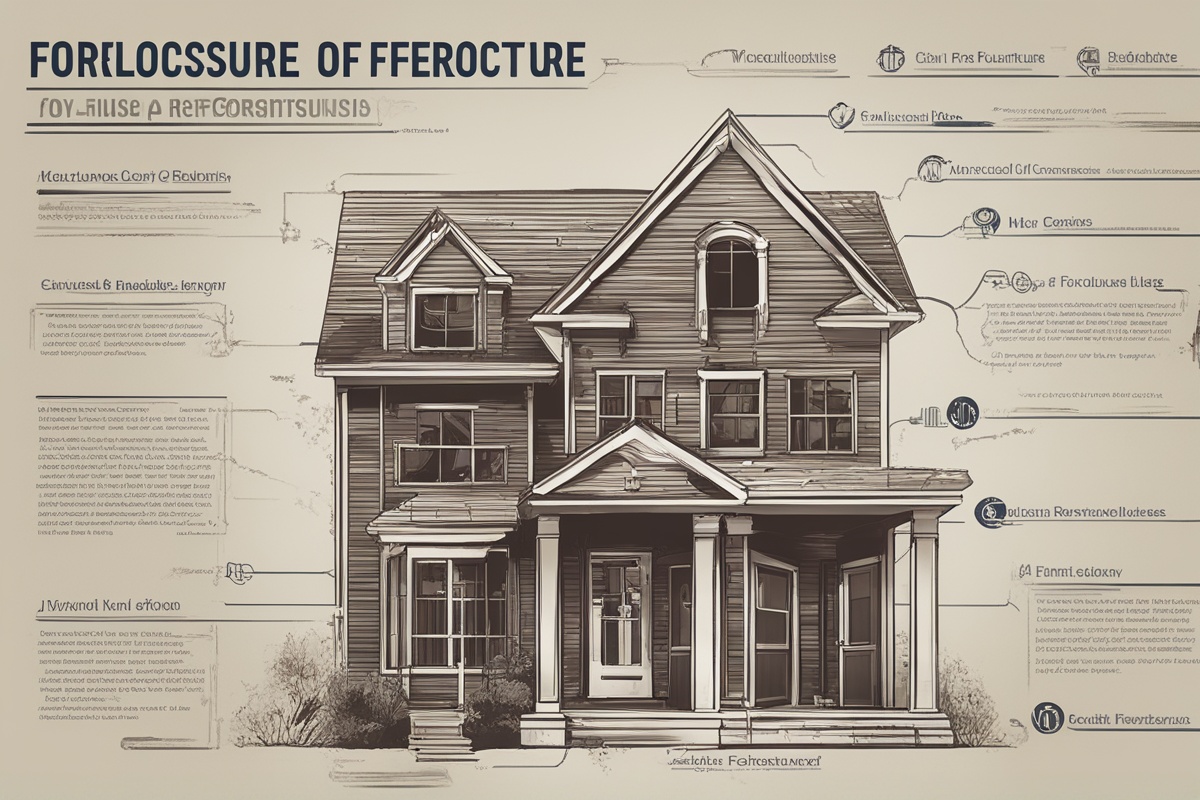Navigating the world of property distress can feel like walking through a minefield. One wrong step, and you’re knee-deep in financial or legal trouble. Whether you’re a homeowner facing foreclosure, a real estate investor sniffing out opportunities, or just someone trying to understand the jargon, getting a grip on the key terms in property distress is essential. These terms aren’t just fancy buzzwords—they’re the building blocks of understanding a complex and often stressful situation. So, let’s dive in and unpack these concepts with clarity, a touch of real-world perspective, and a whole lot of practical insight.
Disclaimer: This article is for informational purposes only, based on general research and experience—it’s not a substitute for professional medical, financial, or legal advice, diagnosis, or treatment. The topics discussed here, especially when related to stress or mental health impacts of property distress, should not be taken as personalized guidance. Always consult a qualified healthcare provider, financial advisor, or legal expert for advice tailored to your unique circumstances. My goal is to provide a helpful starting point, but your situation may require professional input to ensure the best outcomes. If you’re feeling overwhelmed, don’t hesitate to seek support from trusted resources.
What Does “Property Distress” Really Mean?
At its core, property distress refers to a situation where a property owner is unable to meet their financial obligations tied to the property—think mortgage payments, taxes, or maintenance costs. It’s the kind of scenario that keeps people up at night, wondering how they’ll make ends meet. But it’s not just about foreclosure; distress can manifest in various forms, from deferred maintenance to legal disputes over ownership. Imagine you’re a homeowner who’s lost their job, and suddenly, those monthly mortgage payments feel like a mountain you can’t climb. That’s property distress in a nutshell.
The term also extends to properties that are underperforming in the eyes of investors. A rental property with constant vacancies or a commercial building in a declining area might be labeled “distressed.” Understanding this broad definition is the first step to grasping the lingo that surrounds it. If you’re curious about how distress ties into broader real estate trends, check out our post on Real Estate Market Dynamics for a deeper dive.
Key Terms in Property Distress: Breaking Down the Jargon
Let’s get into the nitty-gritty. The world of property distress is riddled with terms that can sound intimidating at first. But don’t worry—I’ve got your back. Here are some of the most critical terms you’ll encounter, explained in plain English with a sprinkle of real-life context.
- Foreclosure: This is the big, scary word most people associate with property distress. It’s the legal process where a lender takes possession of a property because the owner failed to make mortgage payments. I once knew a family who faced foreclosure after a medical emergency drained their savings. It’s heartbreaking, but knowing your rights (and options like loan modification) can make a difference.
- Short Sale: A short sale happens when a homeowner sells their property for less than what’s owed on the mortgage, with the lender’s approval. It’s often a way to avoid foreclosure, though it can ding your credit. Think of it as a “better than nothing” compromise for all parties involved.
- Distressed Sale: This is a broader term for any sale of a property under urgent or unfavorable conditions—think foreclosures, short sales, or even owners desperate to offload a money pit. Investors often swoop in here, hoping for a bargain.
- Loan Modification: This is a lifeline for some homeowners in distress. It’s when a lender agrees to change the terms of a mortgage—lower interest rates, extended terms, or reduced payments—to make it more manageable. It’s not a cure-all, but it can buy time.
- Deed in Lieu of Foreclosure: Here’s a term that doesn’t get enough attention. It’s when a homeowner voluntarily transfers the property deed to the lender to avoid foreclosure proceedings. It’s like saying, “Take the house, but let’s skip the drama.”
These terms are just the tip of the iceberg, but they’re the foundation. If you’re dealing with any of these situations, understanding them can feel like having a roadmap in a storm. For more on how foreclosures work in detail, take a look at our guide on Foreclosure Process Explained.
The Emotional and Mental Toll of Property Distress
Let’s not kid ourselves—property distress isn’t just about numbers on a balance sheet. It can take a serious toll on your mental health. The stress of losing a home or grappling with debt can lead to anxiety, depression, or even physical health issues. I’ve seen it firsthand with a close friend who went through a foreclosure a few years back. The sleepless nights, the constant worry—it’s a heavy burden to carry. Have you ever felt like the weight of the world is on your shoulders? That’s what property distress can do.
Research backs this up. Studies show that financial stress, especially related to housing, is a leading cause of mental health struggles. Knowing the key terms in property distress isn’t just about protecting your wallet—it’s about protecting your well-being too. If you’re feeling overwhelmed, don’t go it alone. Reach out to a counselor or support group. And for more on managing stress in tough financial times, see our piece on Financial Stress Management.
Strategies to Navigate or Avoid Property Distress
So, what can you do if you’re staring down the barrel of property distress? Or better yet, how can you avoid it altogether? I’m not promising a magic bullet, but there are practical steps you can take. First, communication is key. If you’re struggling with payments, don’t bury your head in the sand—call your lender. Many are willing to work out a plan, whether it’s a loan modification or a temporary forbearance.
Second, consider your options early. A short sale might sting, but it could be less damaging than a foreclosure on your credit report. Third, educate yourself on local laws. Some states have protections or programs for homeowners in distress—knowing these can be a game-changer. I recall a client who avoided foreclosure by tapping into a state-funded assistance program they didn’t even know existed until they did some digging.
Prevention is even better. Build an emergency fund, even if it’s just a few bucks a month. And don’t overextend yourself when buying a property—those “dream homes” can turn into nightmares if the payments stretch you thin. These aren’t just tips; they’re hard-earned lessons from years of watching people navigate these choppy waters.
Opportunities in Distressed Properties for Investors
Now, let’s flip the script. Property distress isn’t just a problem—it can be an opportunity if you’re on the buying side. Distressed properties often sell at a discount, making them attractive to investors looking to flip or rent. But hold your horses—it’s not all sunshine and rainbows. These deals come with risks, like hidden repair costs or legal entanglements.
I once worked with an investor who snagged a foreclosed property at auction for 30% below market value. Sounds great, right? Until they discovered the place needed a new roof and had a lien they hadn’t accounted for. The lesson? Do your homework. Research the property’s history, get inspections, and consult a real estate attorney if needed. Understanding key terms in property distress—like “as-is sale” or “title issues”—can save you from a costly mistake.
Why Understanding These Terms Matters More Than Ever
In today’s economic climate, with rising interest rates and housing market uncertainty, property distress is becoming more common. Knowing the lingo isn’t just a nice-to-have; it’s a must. Whether you’re trying to save your home, support a loved one, or seize an investment opportunity, these terms empower you to make informed decisions. Think of it as learning a new language—one that could save you thousands of dollars or countless headaches.
Plus, the ripple effects of property distress touch entire communities. Vacant homes can lower property values, and widespread foreclosures can destabilize neighborhoods. By understanding these key terms, you’re not just helping yourself—you’re contributing to a broader awareness that can foster solutions. Isn’t that worth the effort?
References
- National Institute of Mental Health – Stress and Mental Health
- U.S. Department of Housing and Urban Development – Avoiding Foreclosure
- Consumer Financial Protection Bureau – Loan Modification Explained
- Center for American Progress – Mental Health and Financial Insecurity
This content is for informational purposes only and not a substitute for professional advice.





